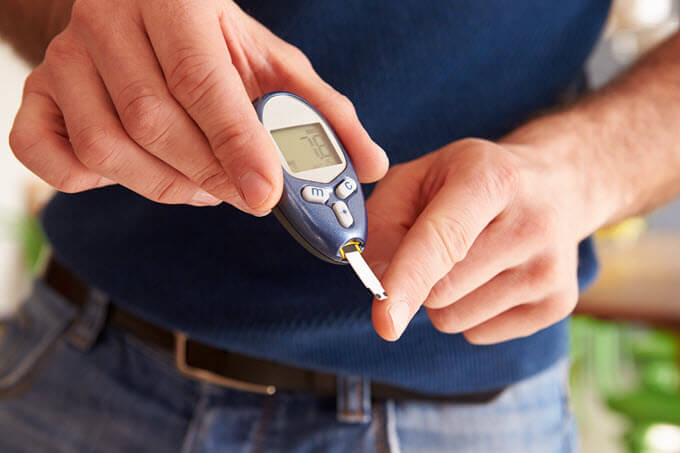The word diabetes is often associated with the word blood sugar. But what exactly is blood sugar and what constitutes as a normal blood sugar level? Blood glucose, also known as blood sugar, is the major source of energy used throughout your body to power all of its functions. Blood sugar varies throughout the day and rises after you eat a meal. When you eat, your body breaks down the food into smaller components that then move throughout the bloodstream. Different foods break down into different nutrients: proteins break down into amino acids, fats break down into fatty acids, and carbohydrates break down into glucose, which essentially powers up your cells to give your entire body the energy it needs. When you have diabetes, your cells aren’t as able to process glucose, so it builds up in your blood, ultimately causing high blood sugar.

For someone without diabetes: A fasting blood sugar level (when you first wake up in the morning) should be under 100 mg/dL (measured in units of milligrams of glucose per deciliter of blood). Before meal normal sugar levels should be between 70-99 mg/dL.
For someone with diabetes: Blood sugar levels tend to be higher than what is considered to be normal and healthy. The less you control your diabetes, the more likely your blood sugar is to remain high or swing drastically between highs and lows. According to the American Diabetes Association (ADA), fasting blood sugar levels before meals should be kept between 80-130 mg/dL.
If you have diabetes, or have reason to believe you are diabetic, there are several tests that can be done to diagnose or check your blood sugar levels. Read more about the most common tests for diabetes here.
When it comes to diabetes, it’s important to give your body conscious help and attention. Eating right, exercising, taking medications, reducing stress, and understanding what a normal blood sugar level is for your body are all ways in which you can manage and conquer this disease.








